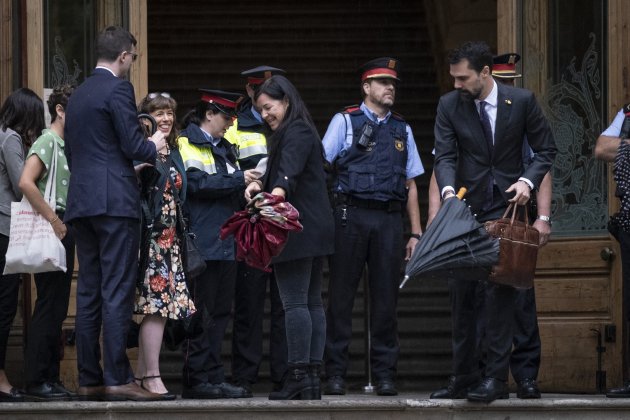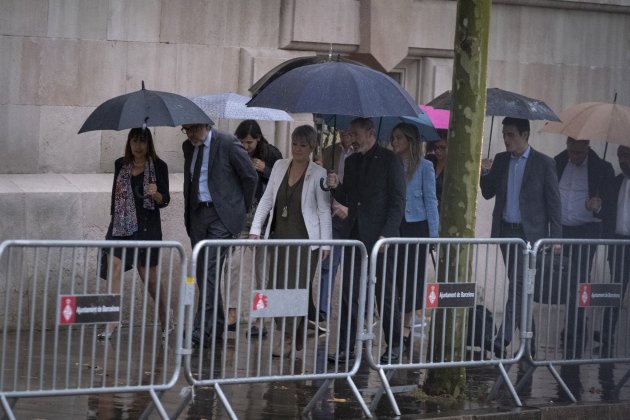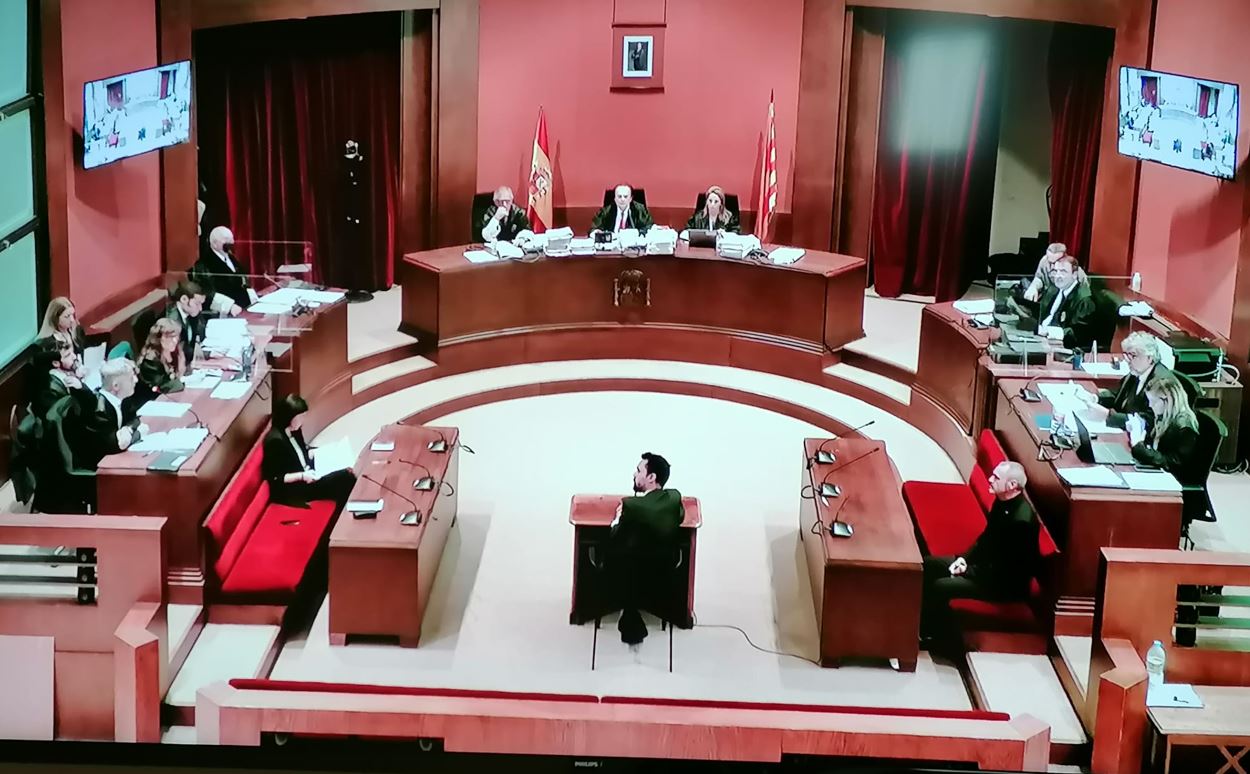"The Constitutional Court cannot prohibit parliamentary debate, especially when there is a social interest." This is what the former president of the Bureau of the Catalan Parliament and current Catalan enterprise minister, Roger Torrent (ERC), stated at the Catalan High Court (TSJC), this Friday, in the last session of the trial in which the four former members of the Bureau are facing charges of disobedience to the Spanish Constitutional Court. Making use of his right as defendant, Torrent refused to be questioned by the public prosecutor nor by the Vox private prosecution, and made a defence of parliamentary inviolability, answered only the questions of his lawyer, Andreu Van den Eynde. The interrogation lasted just over twenty minutes. The former fourth secretary of the procedural Bureau, Adriana Delgado (ERC), also chose to answer only the questions of her lawyer, Olga Arderiu. Torrent and Delgado argued that they did not disobey the Constitutional Court and that they were protected by parliamentary inviolability. The former second secretary of the Bureau and current secretary for the Administration of Justice, Eusebi Campdepadrós (Junts), also testified only to his lawyer, Jordi Pina, and declared himself "angry" because his parliamentary inviolability was not respected. Campdepadrós was accompanied to the TSJC by the Catalan justice minister, Lourdes Ciuró.

Costa's right to the last word
The TSJC chamber judging the four ex-members of the Bureau of the Catalan Parliament chaired by Roger Torrent also offered the fourth member of the Bureau, Josep Costa, the opportunity to return to the trial this Friday to make use of his right to a final word as a defendant charged with disobedience of the Constitutional Court. Costa, former deputy speaker of the Catalan Parliament, who was defending himself, abandoned the trial on Thursday, denouncing it as a "simulacrum" and asserting that his rights had been violated. Costa told Catalunya Ràdio this Friday that his gesture in leaving the chamber was to "make himself heard" and show that "this trial cannot be held because it is full of irregularities". The pro-independence leader said that he "wanted to tell them that this is the point we have reached". In the court this Friday morning, judge Carles Mir stated that Josep Costa did not want to attend. And the trial thus continued, with the final reports.
Political pluralism
Under questioning by his lawyer, Roger Torrent stated that in his exercise as speaker of parliament and thus head of the Bureau, he backed and still does back, like the rest of his colleagues on the Bureau, the need to admit all parliamentary initiatives "to protect fundamental rights and the inviolability of Parliament and MPs". The ERC deputy specified that they had never banned any initiative. He also recalled that the lawyers of Parliament had "doubts" as to whether the initiative of Junts, ERC and the CUP on the defence of Catalonia's self-determination and the rebukes against the monarchy did not comply with the Consitutional Court's mandates. The current enterpise minister recalled that ever since 1989, the plenary session of the Catalan Parliament has passed resolutions on self-determination. Torrent denied that they wanted to disobey the court and that in his opinion it was parliament that should have the lead, in addition to recalling that initiatives evolve and their wording changes.
For her part, Adriana Delgado also declared that they "did not understand" that the Bureau, which is a collegiate body, had to censure the proposals of the parliamentary groups, and she denied that she wanted to disobey the Constitutional Court. Eusebi Campdepadrós stated that in their decisions, the Bureau members "protected political pluralism" and assured that the judicial complaint "is not respectful of the facts as they really happened". Campdepadrós assured that the constitutional guidance was "generic" because that court had warned them that they had to prevent actions that violated their previous resolutions, and that, as well, they did not disobey the legal recommendations of the Parliament's secretary general and the CUP motion was voted on, but was not published in the official gazette of Parliament. The Junts member recalled European jurisprudence, such as the Otegi case on respect for freedom of expression and political participation.


